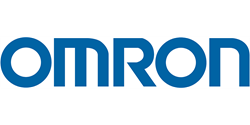Managing inventory in different countries and international logistics can complicate the supply chain. Globalization has changed the landscape for logistics and compliance, from access to a global market for their products to unlimited manufacturing opportunities. Additionally, growing tariffs, international regulations and customs, can jeopardize launching new products or getting the parts when and where needed.
Today, the market is truly global. No longer are vendors restricted to a handful of countries and regions; it is possible to manufacture products in dozens of countries and sell them in hundreds of other locations.
Managing the logistics, local regulations and different manufacturing protocols pose numerous challenges. As OEMs need to use different manufacturing facilities, other issues arise, from working in different languages and different assembly systems, to dealing with unfamiliar unit systems. It is important for suppliers and OEMs to make sure that shipments of parts come in the right format, especially volume units for automated assembly lines.
For many OEMs, especially ones that are not physically present in other markets, localization is one of the critical challenges, notably for consumer products. It is not unusual to see a user manual in Europe with basic instructions in a dozen languages—in fact, in many cases manufacturers provide different documents for different regions.
Other localization issues include different power sockets, eco-packaging and having to deal with waste management of packaging and used products.
International supply chain is full of barriers and regulations
Different regulations and tariffs are in place in many markets. Two-thirds of American companies in China say they have been hurt by the spiraling U.S.-Chinese tariff war[1]. The two sides have imposed 25 percent tariffs on $50 billion of each other’s goods in the dispute over American complaints that Beijing steals or pressures companies to hand over technology.
In a recent letter to investors, Apple’s CEO Tim Cook blamed the escalation trade war for the decline of sales both in China and the US: “We believe the economic environment in China has been further impacted by rising trade tensions with the United States,” he argues.[2]
While it is easier to do business with partners in the European Union, as the EU member states share common legislation and import/export procedures, almost all other countries have their own. Moreover, recent events such as Brexit[3] and the increased trade tensions within the greater international community further complicate matters.
OEMs need to ensure compliance with materials regulations such as the European Restriction of Hazardous Substances Directive (RoHS)[4]. It makes it necessary that vendors not only verify that they don’t use the forbidden substances in their manufacturing processes but also that those substances are not present in the components they source for their products.
One of the most important effects of RoHS and similar regulations is the reduction of exposure to people throughout supply chain / consumers worldwide. Additionally, the global components’ supply chain is plagued with duplicated components, conflict minerals and second-grade inventory. Identifying those parts in international markets is much more difficult than doing it at home.
Relevant regulations are in place related to the minerals supply chain[5]. Both the US and the EU have import restrictions from conflict zones, such as the Democratic Republic of Congo (DRC) and other areas.
Additionally, several governments are imposing trade sanctions to other countries.
For example, the United States’ Office of Foreign Assets Control (OFAC)[6] can sanction any US individual or corporation that trades directly or indirectly with entities in specific geographic regions or with certain governments, such as Russia and North Korea. Understanding the prohibition to source materials or components from entire countries is easy, but making sure that US entities are not dealing with sanctioned suppliers is more complicated.
All of these difficulties make dealing with international suppliers and logistics a severe challenge for OEMs. Moreover, both tariffs and regulations are constantly changing; new duties and import/export procedures can jeopardize product availability and timely deliveries, putting production and time to market at risk.
Arrow can help manage your entire international logistics needs
As a global organization, working with suppliers and OEMs all over the world, Arrow has unmatched experience and footprint in international logistics, procurement, and compliance.
For example, using its landed-cost optimization tools, Arrow can manage logistics and orders to optimize the cost of transport, delivery and volume savings. Working together with suppliers and certifying authorities, Arrow can make sure the supply chain is free of conflict minerals, banned substances, and complying with regional and international regulations. What’s more, the company is continuously checking with OFAC and other government agencies to qualify suppliers which, in turn, helps to avoid potential fines.
When moving products in international markets, bonded, duty-free warehousing (to avoid paying unnecessary tariffs and taxes for products in transit) can be provided to reduce the cost of inventory until it is necessary to release it. Additionally, Arrow can provide record keeping of all international transactions, including bills-of-lading, customs declarations and freight tracking.
Furthermore, Arrow’s international logistics can help provide transportation of product and components from origin to destination in most parts of the world. The company can also help secure your supply chain, ensuring that components and products come from reliable, legal sources, and their quality thoroughly inspected to protect the final product and users.
In sum, Arrow’s global presence and supply chain can help to handle all aspects of international trade.
Original article found on eetimes.com
Resources
[1] US companies in China hurt by tariff war – The Economic Times https://economictimes.indiatimes.com/news/international/business/survey-us-companies-in-china-hurt-by-tariff-war/articleshow/65801193.cms
[2] “Apple’s Glum News About China Sales Sends Global Stocks Lower ….” 3 Jan. 2019, https://www.nytimes.com/2019/01/03/business/world-stock-market.html. Accessed 3 Jan. 2019.
[3] “Brexit Continues & Puts Additional Pressure on UK Industry” 27 Jun. 2017, https://www.ebnonline.com/author.asp?section_id=3560&doc_id=282804&
[4] “Restriction of Hazardous Substances Directive – Wikipedia.” https://en.wikipedia.org/wiki/Restriction_of_Hazardous_Substances_Directive
[5] “Conflict minerals – Wikipedia.” https://en.wikipedia.org/wiki/Conflict_resource.
[6] “Office of Foreign Assets Control (OFAC) – Treasury.gov.” 6 Feb. 2018, https://www.treasury.gov/about/organizational-structure/offices/Pages/Office-of-Foreign-Assets-Control.aspx.

